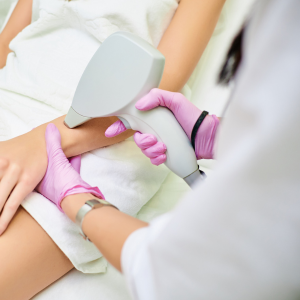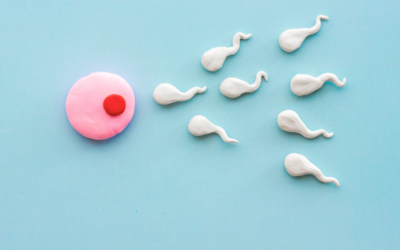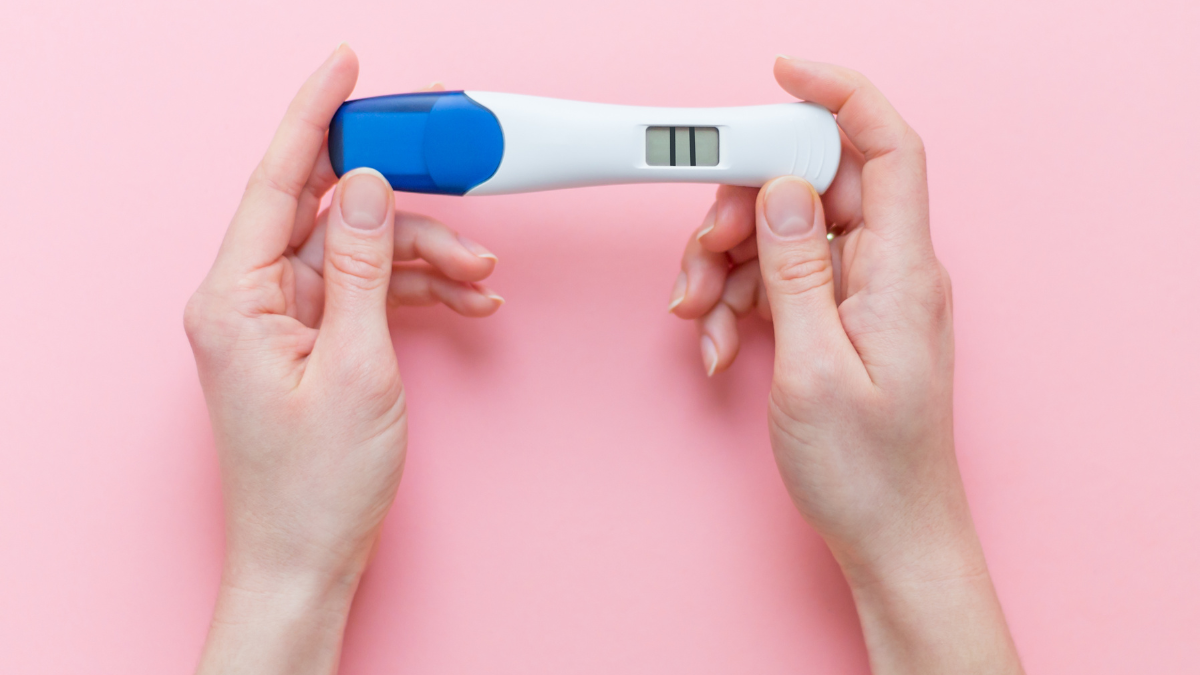Pregnancy is an exciting journey, but it also comes with many questions about safety — especially when it comes to personal care routines. One question that many expectant mothers ask is: “Is laser hair removal safe during pregnancy?” With its promise of long-lasting results, laser hair removal may seem tempting, but pregnancy introduces unique considerations that can affect both your skin and overall health.
Currently, there is limited research on laser hair removal during pregnancy, which means medical experts recommend caution. Hormonal changes can make your skin more sensitive, increasing the likelihood of irritation, redness, or even burns. Additionally, the effects of laser energy on a developing fetus haven’t been extensively studied, making it wise to prioritize safer hair removal alternatives during this time.
In this post, we’ll explore 4 expert insights to help answer the question: Is laser hair removal safe during pregnancy? You’ll learn what dermatologists and OB-GYNs recommend, the risks involved at different stages of pregnancy, and safer methods to keep your skin smooth and comfortable without unnecessary worry.
Table of Contents
How Laser Hair Removal Works
Laser hair removal is a cosmetic procedure that uses concentrated light energy to target hair follicles. The pigment in the hair, called melanin, absorbs the light, which damages the follicle and slows or prevents future hair growth. Key points about how it works:
- Multiple Sessions Required: Hair grows in cycles, so several treatments are needed to target all active hair follicles.
- Heat Generation: The laser produces heat, which can sometimes cause discomfort, redness, or swelling.
- Professional vs. At-Home Devices: While professional treatments tend to be more precise, at-home devices are available but may be less effective.

For pregnant women, skin sensitivity changes significantly due to hormonal fluctuations. This can make the skin more prone to irritation, burns, or hyperpigmentation after laser sessions. Additionally, because pregnant women are rarely included in laser hair removal studies, there is limited research on safety during pregnancy. While no conclusive evidence shows that laser hair removal harms the fetus, most experts recommend postponing treatments to avoid any unknown risks.
Why Experts Advise Caution
While laser hair removal is generally safe for non-pregnant adults, pregnancy introduces several factors that make professionals recommend avoiding it:
- Limited Research Data:
- Few studies include pregnant women.
- Unknown long-term effects on mother and baby.
- Hormonal Changes Affect Skin:
- Increased sensitivity can cause redness, irritation, and burns.
- Skin may react unpredictably to laser treatments.
- Heat Exposure:
- Laser generates heat; although not proven harmful to the fetus, precaution is advised.
- Some women may feel uncomfortable during treatment due to body changes.
- Risk of Discomfort or Pain:
- Areas that are usually tolerable may become painful due to skin and nerve sensitivity changes.
Expert Recommendation: Most dermatologists and OB-GYNs suggest waiting until after pregnancy for laser hair removal to ensure safety and comfort.
Risks of Laser Hair Removal During Pregnancy
Even though severe complications are rare, pregnant women face potential risks:
- Skin Irritation: Redness, swelling, and itching may be more pronounced.
- Hyperpigmentation: Hormonal changes can increase the risk of dark spots.
- Increased Pain: Sensitivity in treated areas may cause discomfort.
- Unknown Effects: Lack of studies means the long-term impact on pregnancy is uncertain.
Key Takeaway: While the procedure is not proven to harm the baby, the unknown risks and skin sensitivity make it safer to delay laser treatments until after pregnancy.
4 Safer Hair Removal Alternatives
While laser hair removal is not recommended during pregnancy, there are several safe and effective alternatives that allow expectant mothers to stay comfortable and confident:
- Shaving
- Quick and Safe: Shaving is one of the simplest and safest hair removal methods during pregnancy.
- Low Risk of Skin Reaction: Unlike laser treatments, shaving rarely causes irritation if done carefully.
- Tips: Use a sharp razor and gentle shaving cream. Avoid shaving over irritated or sensitive areas.
- Waxing or Sugaring
- Effectiveness: Waxing removes hair from the root, making results last longer than shaving.
- Safety Considerations: Generally safe, but patch-test first due to heightened skin sensitivity.
- Precaution: Avoid hot wax that can burn sensitive skin, especially in areas prone to swelling or irritation.
- Depilatory Creams
- Chemical Hair Removal: Creams dissolve hair on the surface of the skin.
- Caution Required: Choose pregnancy-safe formulas, avoid harsh chemicals, and test a small area first.
- Benefits: Quick, pain-free, and effective for legs, arms, and underarms.
- Trimming
- Ideal for Sensitive Areas: Bikini line, underarms, or abdominal areas can be managed safely with scissors or electric trimmers.
- No Skin Irritation: Trimming avoids heat or chemicals and is completely safe for the mother and baby.
- Practical: Especially useful as hair growth may increase during pregnancy due to hormonal changes.

Expert Tips for Moms-to-Be
Managing hair removal during pregnancy doesn’t have to be stressful. Experts recommend focusing on safety, comfort, and practicality. Here are key tips:
- Prioritize Low-Risk Methods
- Shaving, trimming, or gentle waxing are recommended over laser or chemical-based treatments.
- Avoid any method that involves heat, strong chemicals, or invasive procedures.
- Patch-Test Before Trying New Methods
- Skin can become more sensitive due to hormonal changes.
- Test a small area before using depilatory creams or waxing to avoid irritation or allergic reactions.
- Avoid Hot Wax and Heated Devices
- Heat can aggravate sensitive skin and cause discomfort.
- Use lukewarm wax if waxing and avoid hot water contact immediately after hair removal.
- Consult Your Healthcare Provider
- If you have skin conditions, rashes, or pregnancy-related complications, speak with your OB-GYN or dermatologist.
- Personalized advice ensures safety and minimizes the risk of skin damage.
- Accept Temporary Changes
- Hair growth may increase in some areas due to hormonal fluctuations.
- Embrace temporary methods and understand that hair growth often normalizes after pregnancy.
- Focus on Comfort Over Perfection
- Pregnancy is a time for gentle self-care.
- Choose methods that keep you comfortable and confident without stressing your body.
Can I Have Laser Hair Removal While Pregnant?
Laser hair removal is a popular cosmetic procedure, but pregnancy introduces unique considerations. Experts generally advise against having laser hair removal while pregnant, primarily due to limited research and heightened skin sensitivity.
Why laser hair removal is not recommended:
- Limited safety data: Pregnant women are rarely included in clinical trials for cosmetic procedures, so long-term effects on the baby are unknown.
- Hormonal changes: Pregnancy hormones can make your skin more sensitive, increasing the risk of irritation, redness, or burns.
- Heat exposure: Lasers generate heat. While it’s unlikely to harm the fetus, it may cause discomfort or skin reactions.
- Pain sensitivity: Nerve endings can become more sensitive, making the procedure more uncomfortable than usual.
Alternatives during pregnancy:
- Shaving or trimming for safe hair management.
- Waxing or sugaring, with patch tests to ensure skin tolerance.
- Depilatory creams with pregnancy-safe formulas, applied cautiously.
Key takeaway:
While no evidence shows harm to the baby, most dermatologists and OB-GYNs recommend postponing laser hair removal until after pregnancy. Using safer alternatives ensures comfort without unnecessary risk.
What Happens If You Accidentally Get Laser Hair Removal While Pregnant?
Accidents happen, and some women may receive laser hair removal before knowing they are pregnant. Generally, one session is unlikely to cause harm, but several factors should be considered:
- Single exposure risk: One session produces minimal heat and light exposure to the body. Current evidence does not suggest fetal harm from a single accidental session.
- Skin reaction: Pregnant skin may react strongly, causing temporary redness, swelling, or irritation.
- Future precautions: Avoid further treatments until after pregnancy.

Steps to take if it happens:
- Inform your OB-GYN: They can assess any potential risks and monitor your pregnancy.
- Monitor skin for reactions: Apply gentle soothing creams if irritation occurs.
- Postpone future sessions: Wait until postpartum or after breastfeeding for laser hair removal.
Summary: Accidental exposure is usually not dangerous, but ongoing treatments should be avoided until pregnancy is over.
How to Remove Private Hair During Pregnancy
Maintaining hygiene and comfort in the bikini area is important during pregnancy. Safe methods include:
- Trimming: The safest method, especially in sensitive areas, avoids chemicals or heat.
- Shaving: Use a sharp razor and gentle cream. Shave slowly to prevent nicks and irritation.
- Waxing or Sugaring: Generally safe, but test a small area first. Avoid extremely hot wax.
- Depilatory creams: Use pregnancy-safe formulas cautiously. Avoid harsh chemicals.
Tips for sensitive skin:
- Always moisturize after hair removal to reduce irritation.
- Avoid tight clothing immediately after shaving or waxing to prevent friction.
- Do not attempt laser hair removal or at-home IPL in private areas during pregnancy.
Key takeaway: Safe grooming focuses on comfort and hygiene. Temporary methods are recommended until after pregnancy.
Is Philips Lumea Safe During Pregnancy?
Philips Lumea is an at-home IPL (intense pulsed light) hair removal device. Similar to professional lasers, it is not recommended during pregnancy:
- No research on pregnancy safety: IPL devices emit light and heat; effects on a developing fetus are unknown.
- Increased skin sensitivity: Pregnancy can increase irritation risk.
- Manufacturer guidance: Philips specifically advises avoiding use during pregnancy.
Safer alternatives:
- Shaving, trimming, waxing, or using depilatory creams that are pregnancy-safe.
Summary: Philips Lumea should be avoided until after pregnancy. Safer methods provide comfort without risk.
What Hair Removal Methods Are Safe When Pregnant?
During pregnancy, low-risk hair removal options include:
- Shaving: Quick, safe, and effective.
- Trimming: Perfect for sensitive areas, like bikini or underarm regions.
- Waxing or Sugaring: Safe with patch-testing due to hormonal skin sensitivity.
- Depilatory creams: Use only pregnancy-safe formulas, patch-tested first.
Tips:
- Avoid heat-intensive treatments (laser, IPL).
- Patch-test all products due to increased skin sensitivity.
- Focus on comfort over perfection.
Summary: Pregnant women should use gentle, low-risk hair removal methods. Laser and IPL treatments should be postponed.
What Hair Treatments Are Not Allowed During Pregnancy?
Certain hair treatments pose risks to the mother or fetus:
- Laser hair removal & IPL: Unknown fetal effects, skin irritation risk.
- Chemical hair straightening or perming: Strong chemicals may be absorbed by the skin or inhaled.
- Bleaching or hair dye with ammonia or peroxide: Limited data, patch-test recommended if unavoidable.
- Excessive heat treatments: Hair irons and scalp treatments may cause scalp irritation or burns.
Tip: Always read product labels and consult a healthcare provider before using chemical treatments.
Summary: Avoid treatments involving heat, strong chemicals, or lasers during pregnancy. Stick to safe, low-risk methods.
Can Laser Hair Removal Cause Pregnancy Issues?
Currently, there is no evidence that laser hair removal causes pregnancy complications, but the lack of research makes it risky:
- Unknown long-term effects: Pregnant women are rarely included in studies.
- Skin sensitivity: Increased irritation may cause discomfort or secondary infection.
- Precautionary principle: Doctors recommend waiting until after pregnancy.
Key point: Safety is not guaranteed, so postponing laser treatments is the safest option.
Can I Get Waxed While Pregnant?
Yes, waxing is generally considered safe, but precautions are needed:
- Patch-test first due to sensitive skin.
- Avoid extremely hot wax to prevent burns.
- Areas to avoid: Inflamed or irritated skin should not be waxed.
- Trim hair first: Helps reduce pain during waxing.
Summary: Waxing is safe with caution and proper technique. Laser hair removal is not recommended.
How Soon After Birth Can I Get Laser Hair Removal?
Laser hair removal is generally safe after pregnancy and breastfeeding:
- Wait at least 6–12 weeks postpartum to allow skin to recover.
- Breastfeeding: Limited research exists; many dermatologists recommend waiting until after breastfeeding.
- Skin sensitivity: Postpartum hormonal changes may still increase irritation risk.
Tips:
- Start with a small test area to check for reactions.
- Avoid sun exposure immediately after laser sessions.
Summary: Postpartum laser hair removal is safe, but waiting ensures comfort, reduces skin sensitivity, and avoids potential risks.
Is Laser Hair Removal Safe During Pregnancy First Trimester?
The first trimester (weeks 1–12) is the most critical period of fetal development, as organs and major body systems are forming. During this time, most doctors strongly advise avoiding elective cosmetic procedures, including laser hair removal.
Why it’s not recommended:
- Limited research: Pregnant women are rarely included in laser hair removal studies, so there is no conclusive data about fetal safety.
- Skin sensitivity: Hormonal changes make skin more prone to redness, irritation, or burns, especially when exposed to heat or light from lasers.
- Stress and discomfort: The first trimester often comes with nausea, fatigue, and general discomfort, making it less ideal to undergo potentially painful procedures.
Safer alternatives for first-trimester hair removal:
- Shaving: Quick, effective, and risk-free. Use a clean, sharp razor with gentle shaving cream.
- Trimming: Safe for intimate areas or hard-to-reach regions.
- Waxing or sugaring: Generally safe but test a small patch due to increased sensitivity.
- Depilatory creams: Only use pregnancy-safe formulas and patch-test before full application.
Summary: While a single accidental laser session is unlikely to harm the fetus, elective laser hair removal should be postponed until after pregnancy to ensure safety and comfort. Focus on low-risk, gentle hair removal methods during this crucial period.
I Had Laser Hair Removal While Pregnant Second Trimester
If laser hair removal occurs during the second trimester (weeks 13–27), many women worry about fetal risks and skin reactions. Fortunately, the second trimester is considered more stable for pregnancy, but elective laser treatments are still discouraged.
Potential concerns:
- Skin sensitivity: Hormonal changes may still make the skin more reactive, leading to redness, swelling, or hyperpigmentation after treatment.
- Discomfort during sessions: Growing belly size may make it uncomfortable to lie down for laser treatments.
- Unknown fetal effects: Although laser energy is localized and unlikely to affect the fetus, studies on pregnant women remain limited.
Steps to take if it happens accidentally:
- Inform your OB-GYN to monitor any potential risks.
- Avoid further laser treatments until postpartum.
- Use safer hair removal alternatives such as shaving, trimming, or gentle waxing for the remainder of pregnancy.
Summary: Accidental exposure in the second trimester is generally low-risk, but elective sessions should definitely be postponed until after pregnancy.
Is Laser Hair Removal Safe During Pregnancy Third Trimester?
During the third trimester (weeks 28–40), laser hair removal is strongly discouraged. This period is characterized by significant physical changes that can make procedures more uncomfortable or risky.
Considerations for third-trimester laser hair removal:
- Skin sensitivity: Hormonal and fluid changes may cause swelling, redness, or irritation.
- Discomfort lying down: Laser treatments require lying still, which can be uncomfortable or even unsafe due to pressure on major blood vessels.
- Limited research: Safety data remains insufficient, making any procedure elective and precautionary rather than medically necessary.
Safer alternatives in the third trimester:
- Shaving or trimming for safe maintenance of hair growth.
- Gentle waxing or sugaring, with small patch-tests first.
- Pregnancy-safe depilatory creams, applied cautiously.
Summary: Avoid laser treatments in late pregnancy. Stick to safe, low-risk methods to maintain comfort and hygiene.
Can Laser Hair Removal Cause Miscarriage?
Many women worry that laser hair removal could trigger miscarriage. Here’s what experts say:
Key facts:
- Localized treatment: Laser energy only targets hair follicles, not internal organs.
- No documented cases: No studies or reports show that laser hair removal causes miscarriage.
- Precautionary principle: Despite low risk, doctors recommend avoiding elective laser treatments to eliminate any potential unknown risk.
Considerations:
- Skin irritation or burns from laser treatments are possible, but these do not affect the fetus directly.
- Repeated sessions may increase maternal discomfort, but are unlikely to impact pregnancy outcome.
Summary: Laser hair removal is not known to cause miscarriage, but postponing treatment until after delivery is safest.
Laser Hair Removal 5 Weeks Pregnant
At 5 weeks, the pregnancy is in the early first trimester, when the fetus is highly sensitive.
Why laser hair removal is discouraged:
- Critical development stage: Organs are forming; limited research means safety is unknown.
- Increased skin sensitivity: Hormones make skin more prone to irritation or hyperpigmentation.
- Discomfort: Early pregnancy symptoms like nausea may make sessions uncomfortable.
Safer alternatives:
- Shaving or trimming.
- Gentle waxing with a patch test.
- Pregnancy-safe depilatory creams for legs or arms.
Summary: Avoid laser hair removal in early pregnancy. Stick to safe hair removal methods until later stages or postpartum.
Is Laser Hair Removal Safe During Breastfeeding?
Laser hair removal during breastfeeding is generally considered safe, with some precautions:
Considerations:
- Laser energy is localized and does not enter breast milk.
- Avoid treating the nipple or breast area.
- Postpartum skin may still be sensitive, so patch-testing is recommended.
- Stay hydrated and comfortable during sessions.
Safer alternatives:
- Shaving or trimming if skin sensitivity is high.
- Avoid chemical creams near the breasts.
Summary: Laser treatments are generally safe away from the breasts, but postpartum hormonal changes may increase sensitivity.
Conclusion
So, is laser hair removal safe during pregnancy? The short answer is: it’s best to avoid it. While there is no concrete evidence showing that laser hair removal directly harms a developing baby, there is limited research on its effects during pregnancy. Hormonal changes make your skin more sensitive, which increases the risk of irritation, redness, burns, or hyperpigmentation. Because of these unknowns, most dermatologists and OB-GYNs recommend postponing laser treatments until after pregnancy and breastfeeding.
Instead, expectant mothers can rely on safer hair removal alternatives, such as shaving, trimming, gentle waxing, or pregnancy-safe depilatory creams. These methods allow you to stay comfortable, maintain hygiene, and avoid unnecessary risk. Always patch-test products, avoid harsh chemicals, and consult your healthcare provider if you have any concerns.
After giving birth, you can safely return to laser hair removal when your body has recovered, keeping in mind postpartum skin sensitivity and potential hormonal changes that may temporarily affect hair growth.







